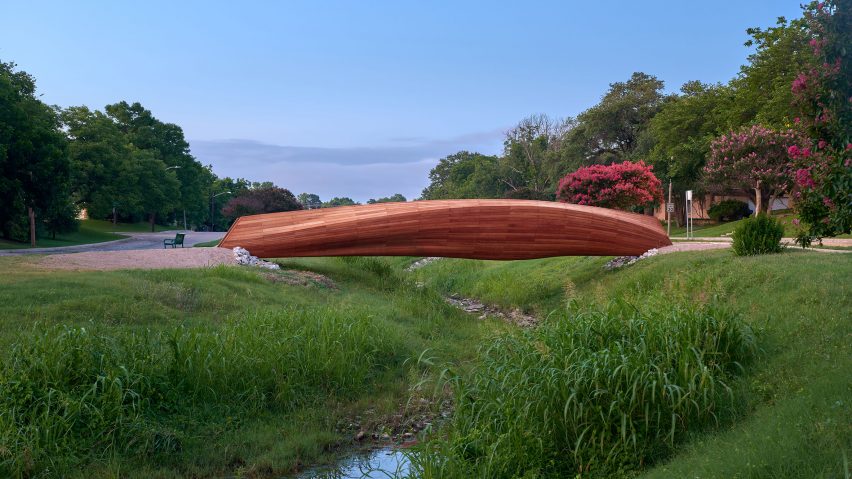
Volkan Alkanoglu designs cedar bridge to resemble a driftwood branch
Portland designer Volkan Alkanoglu has spanned a creek in Fort Worth, Texas, with a sculptural timber bridge named Drift.
The timber and steel bridge was built over a gully in the city's South Hills residential area to form a connection between two parks and communities along the Trinity River Trail system.
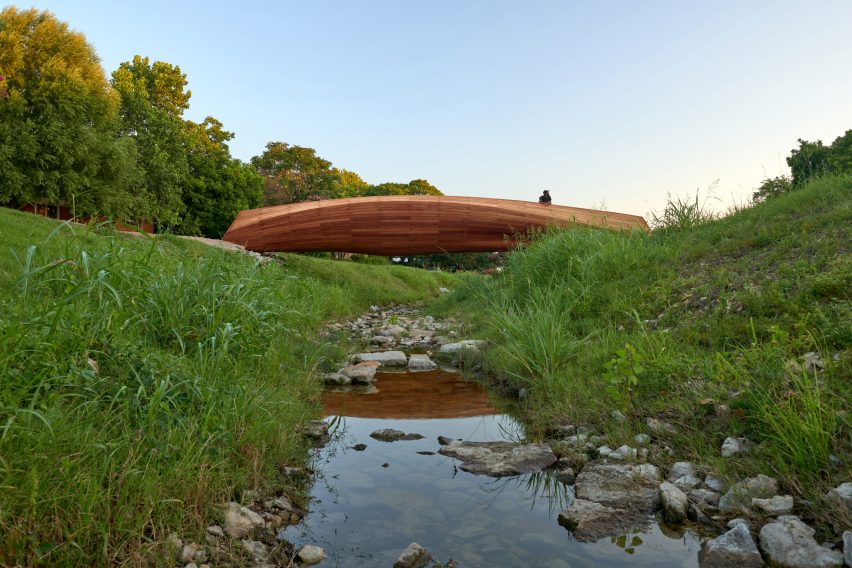
With no route across the waterway for seven blocks, the Fort Worth Public Art programme commissioned Alkanoglu to design a structure that could act as both infrastructure and sculpture.
His response to the brief was a bridge that used sustainable materials and aimed to have minimal impact on the site while keeping within the $375,000 (£270,000) budget.
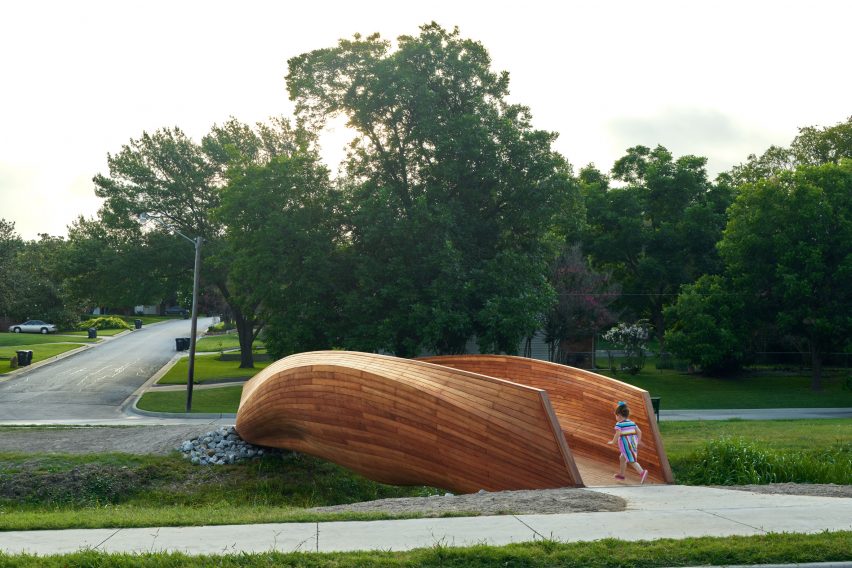
The design was informed by the creek's seasonal transformation from a flowing stream to a dry, driftwood-filled basin.
Another point of reference was the innovative plywood leg splint designed by Ray and Charles Eames for soldiers wounded in the second world war, which dates back to the same era as the neighbourhood's midcentury houses.
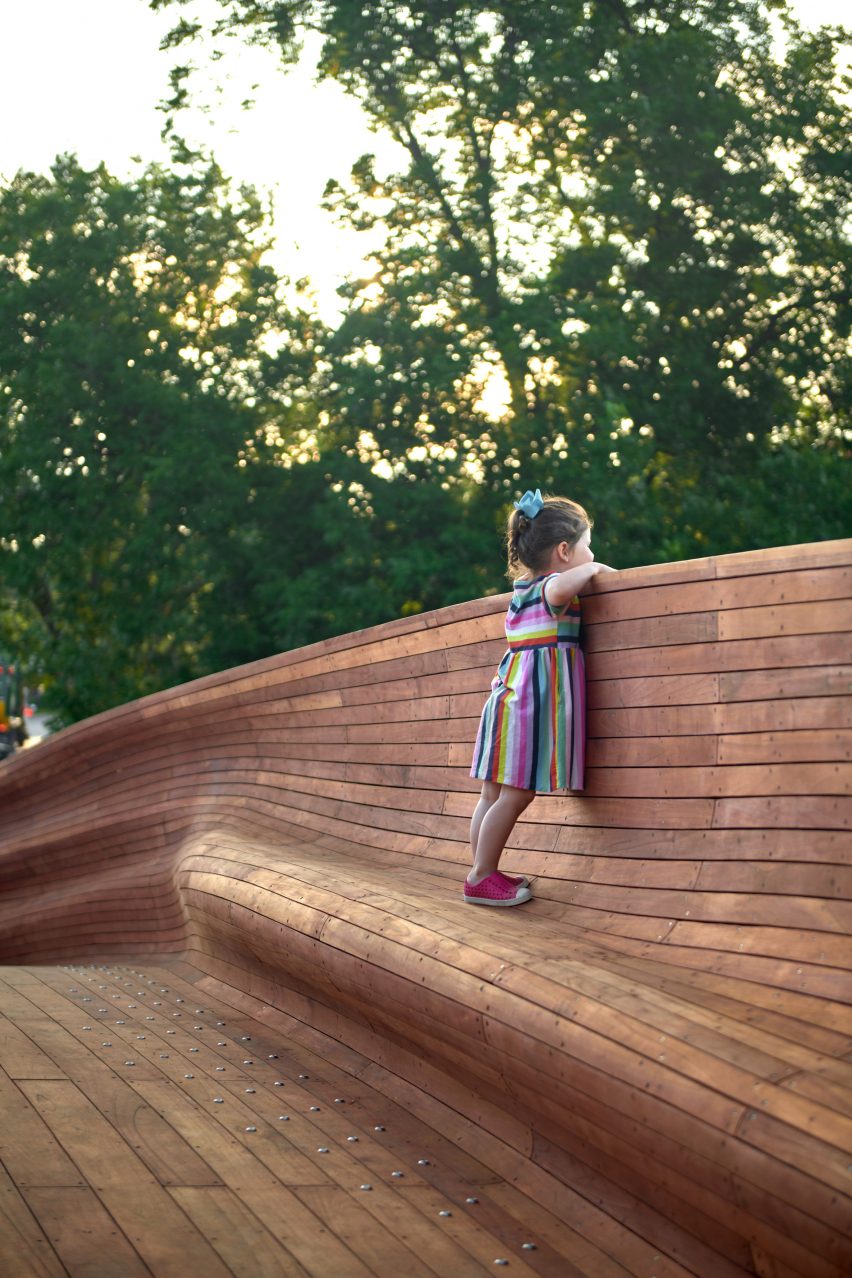
Originally intended to be made entirely of cross-laminated timber (CLT), but constrained by the budget, the final bridge structure was built around a steel armature clad in CNC- and flip-milled planks of Spanish cedar.
"Each plank was custom cut, then stack-laminated into one large, volumetric, undulating form," said the studio.
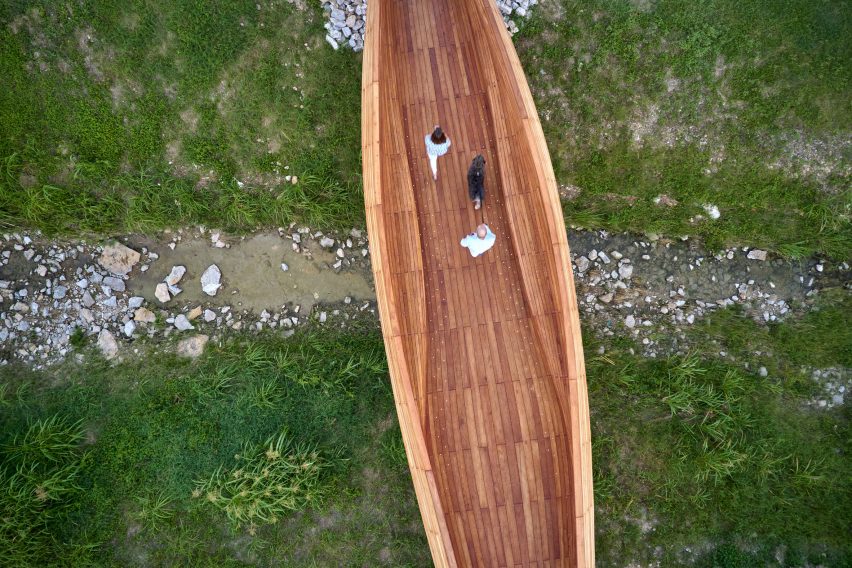
"In this way, the bridge could be fabricated off-site, transported to the location by an oversize truck as one piece and lifted into place with a crane," explained Alkanoglu, who added that installation took no longer than a couple of hours.
Measuring 62 feet (19 metres) long, the bridge is reminiscent of a hollowed log or canoe.
Railings and benches are embedded along the length of its curved sides, allowing pedestrians to pause and take in the scenery.
The wooden form is balanced on piers, which act as foundations on either bank and include a rip-rap drainage system to minimise the structure's footprint.
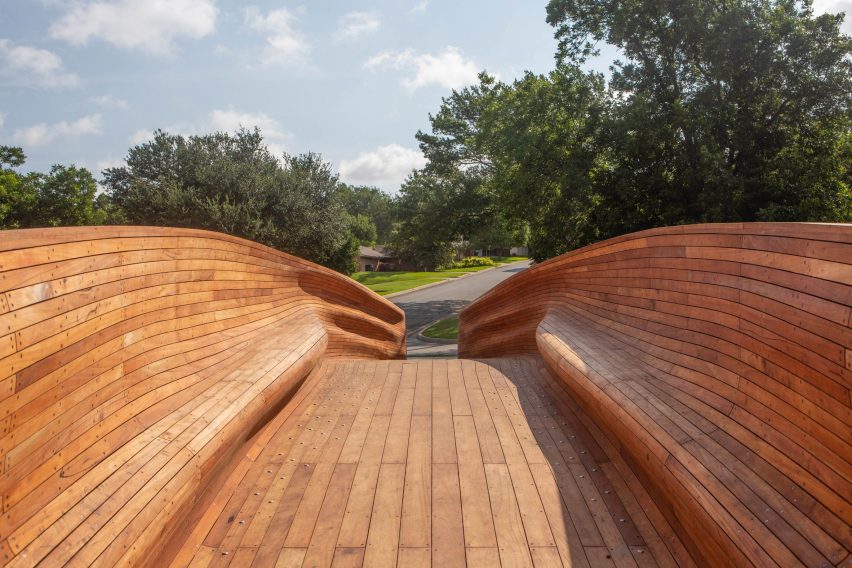
"While stitching the urban neighborhood fabric back together, Drift also offers social and ecological opportunities for the local community through the use of sustainable principles, which can alter our collective understanding of the built environment," added the designer.
Drift is the first infrastructure project by Alkanoglu, who runs his studio VA Design out of Portland, Oregon.
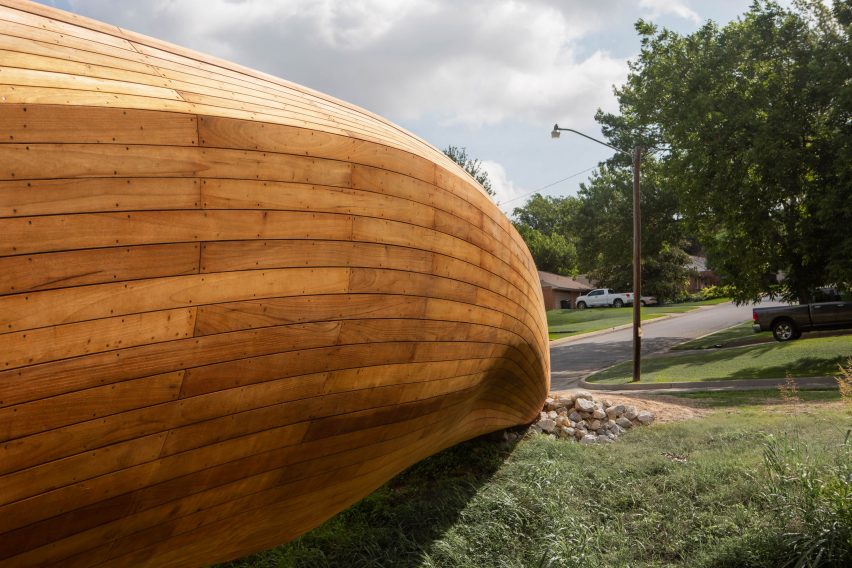
He describes the bridge as an example of "plug-and-play urbanism", an "economically feasible way to produce mid-scale infrastructure offsite and deliver it to its urban context".
Alkanoglu's previous work includes a number of sculptural interventions intended to transform the built environment through inventive material explorations.
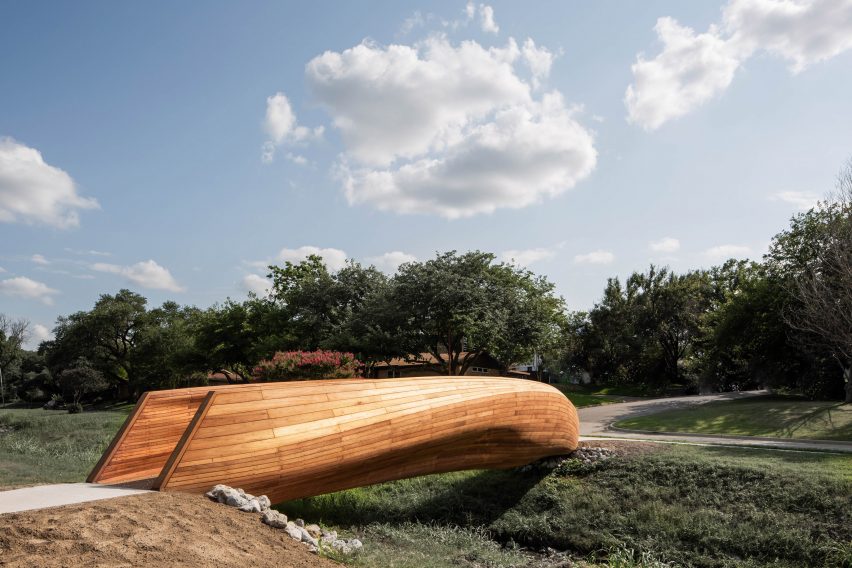
As a typology, the pedestrian bridge has allowed many architects and designers to experiment with unusual shapes and materials.
A crossing that was 3D-printed in stainless steel recently opened in Amsterdam while students in California completed a bridge with the help of industrial robotic arms earlier this year.
The photography is by Peter Molick unless stated otherwise.
Project credits:
Design: Volkan Alkanoglu
Client: City of Fort Worth, Fort Worth Public Art Program
Public art manager: Anne Allen
Fabrication: Ignition Arts, Brownsmith Studios
Structural engineering: CMID Engineers
Geotechnical engineering: Alpha Testing
Material testing: Simpson, Gumpertz & Heger
Concept engineering: AKT II